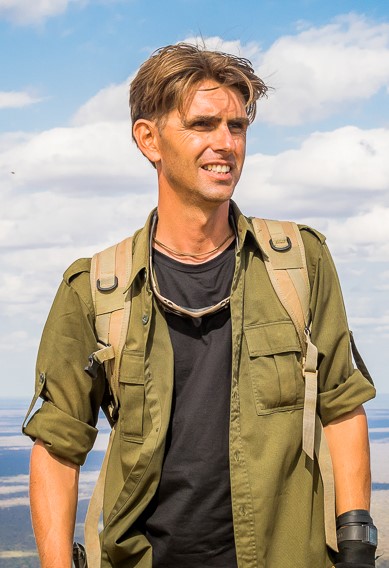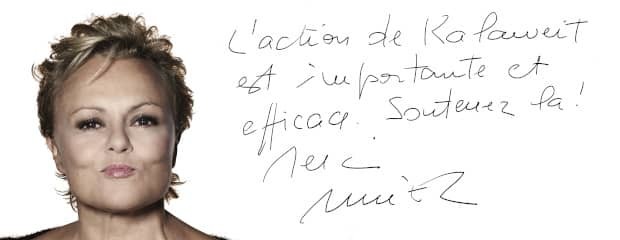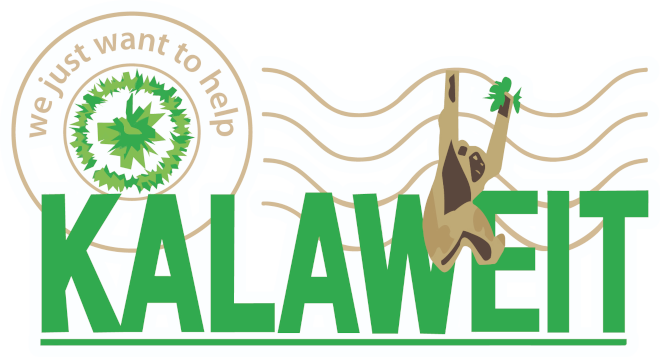The story of kalaweit
The Kalaweit organisation was created by Chanee, a French man passionate about gibbons since he was a teenager.

In 1998, aged 18, he left for Indonesia with the support of actress Muriel Robin, who financed his trip. He wanted to devote his life to the protection of the gibbons he knew to be threatened by the disappearance of the forests.
Once there, he realised that deforestation exceeded what he had imagined and the serious threat it posed to wildlife, especially gibbons. Living in the trees, they are the first to be affected if the forest disappears.
He then created a first care center in Borneo (Kalimantan), to collect the gibbons rescued from trafficking as there was no infrastructure, then, to receive these animals. In 2003, he opened a second health center on the island of Sumatra and created the Kalaweit FM radio station which broadcast in Borneo until June 2022. A third center opened on the island of Mentawaï in 2022.
Since 2012, the organisation has been working with partner villages to protect their forests, which are growing in size every year. This helps protect wild animals from deforestation and trafficking.
Kalaweit means “gibbon” in Dayak, the majority ethnic group of the island of Borneo.
The organisation supports biodiversity in general and remains the largest project in the world that saves gibbons.
In Indonesia, forests are destroyed because of mining and logging, but especially for the production of palm oil. Young gibbons are captured and become pets but, at around 7 years of age, they reach sexual maturity, become aggressive and are killed. When the young are captured, the parents are often killed.
Thanks to Muriel Robin for her support.

Thousands of animals have been rescued by Kalaweit: gibbons and siamangs but also bears, macaques, crocodiles, binturongs, reptiles, birds, etc.
Most, other than gibbons and siamangs, have been released. A large number of gibbons and siamangs, which are much harder to release (territorial, fragile, etc.), will not be able to return to the wild and will remain at Kalaweit.
Our missions
More than 6,000 gibbons are thought to be illegally kept in captivity on the islands of Borneo, Sumatra and Java alone. Kalaweit cannot rescue them all.
Through its forest conservation efforts, the association works to protect wildlife and allows local populations to live in a preserved natural environment.
Helping local communities to protect their forests
The preservation of forests can only be achieved with the support of the communities living around them. It is done in close collaboration with partner villages that refuse to let their environment degrade in favor of palm oil plantations, nickel, coal, or gold mines.
By acquiring hectares of forest, Kalaweit saves them from destruction and returns them to the local populations. These areas thus become communal forests that are protected and managed by Kalaweit.Reformuler.
Giving a second chance to animal victims of trafficking
Even though Kalaweit no longer receives animals, the associationensures the best possible living conditions for those in its care centers.
Before their arrival at Kalaweit, the animals are kept in unsuitable conditions: cramped cages, stressful environment, inappropriate diet, lack of stimuli and companions. Some are even killed at the age of sexual maturity, around 6/7 years old, because they have become “unmanageable”.
Since its creation, Kalaweit has released and saved thousands of animals, but not all can be released.
Raising awareness among indonesians of the need to respect wildlife
Awareness among the general public is achieved through communication actions on social media, in the media (press, radio, TV, internet), and through actions by our volunteers.
The relationships developed on the ground with local populations and local actors allow Kalaweit to make itself known and promote messages on the protection of forests and wildlife. This allows for finding new partner villages for the creation of new protected areas.
.
Integrating the local populations and the authorities
Kalaweit cannot act effectively without the support of the local population. The association is in direct contact with local actors (mayors, village chiefs, authorities, etc…) to explain our actions and understand their needs and difficulties. The hiring of local staff creates proximity and a bond with the villagers, who thus come to know the association.
Medical care is provided free of charge by Kalaweit to employees and their families. Finally, the fight against poaching and illegal logging is carried out in collaboration with the police.
Our team
In France
Board of directors:
President and Founder of Kalaweit :
Chanee
Treasurer : Jean-Marc Bouve
Secretary : Carine Le Thanh
Head of Kalaweit office France: Constance Cluset
In Belgium
Head of Kalaweit office Belgium: Patricia Coenen
In Indonesia
62 employees work for Kalaweit including the vets, technicians, cooks, wardens and accountants…
In Switzerland
Head of Kalaweit office Switzerland: Julien Buée
In Indonesia
In Europe France / Belgium / Switzerland
Annual budget
| Expenses 2024 | € / year | Distribution |
|---|---|---|
| Wages and payroll charges (65 employees) | 271 979 | 24 % |
| Food & cares for animals | 97 453 | 8 % |
| Running costs France | 126 018 | 11 % |
| Servicing of infrastructures | 19 246 | 2 % |
| Transport and logistics | 81 159 | 7% |
| Running costs Indonesia | 22 523 | 2 % |
| Forest protection | 551 387 | 46 % |
| Total | 1 169 765 | 100 % |
General assembly
Here are the report or our last Annual General Assembly. It contains the financial and moral reports of Kalaweit France and Yayasan Kalaweit Indonesia for each year (reports in french).

